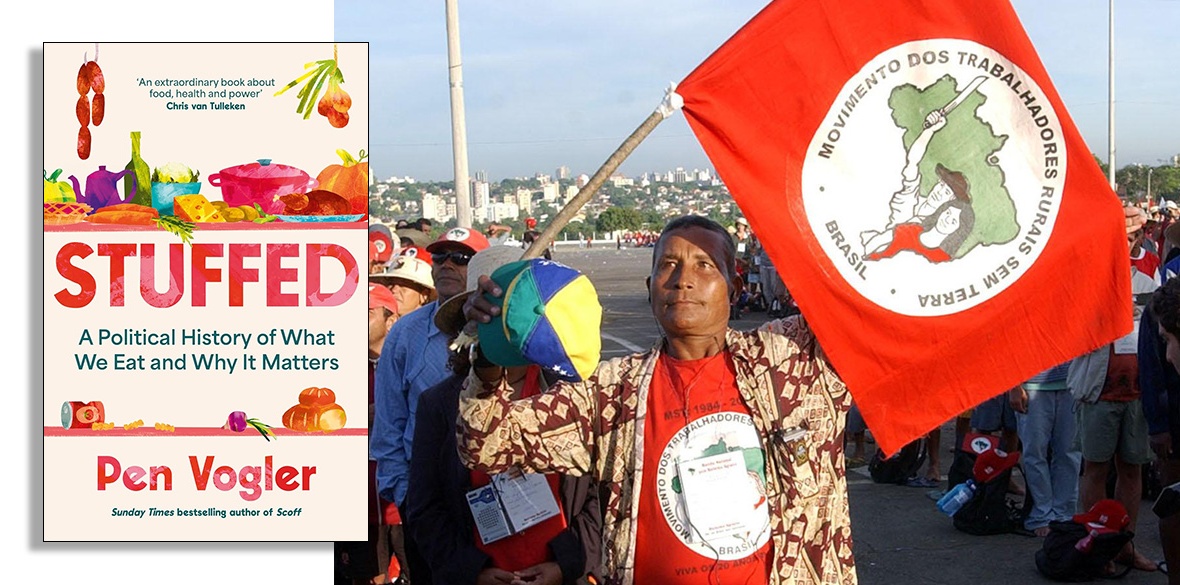This is the last article you can read this month
You can read more article this month
You can read more articles this month
Sorry your limit is up for this month
Reset on:
Please help support the Morning Star by subscribing here
Stuffed: A political history of what we eat and why it matters
Pen Vogler, Atlantic Books, £10.99
COVERING a huge range of subjects, Stuffed is very much about the history of foods and tastes that we often take for granted.
However, given that the shelves of every corporate bookshop and remainder shop are littered with endless variants of street food, of different takes on national cuisines, of fad diets and already well-known recipes revamped by celebrity chefs, combined with ghost-written biographies, why the interest in this particular text?
The immediate attraction is that Stuffed is on very different territory, and does so in a fashion attractively written but at the same time with a seriousness that is sustained throughout.
Has it ever occurred to you why quinoa and chickpeas are in, but British green beans are out? Are you interested why supermarket fruit and veg are packed with info about their fair trade/organic/locally sourced credentials while tinned and frozen items rarely mention any of these at all? Have you ever thought about how the “average“ (for want of a better word) British diet has changed markedly over the years?
If you say yes to any of these, then this is very much the book for you.
Not that every question and every debate is entirely new. As Vogler ably notes, while the worst forms of adulterated food are no longer in evidence, legitimate concerns around ultra-processed foods are not substantively different. Similarly, understanding familial responsibilities and to what degree an interventionist state should help in feeding children predate the Jamie Oliver versus Rawmarsh parents school gates battle by well over a century.
Often, the book feels like an exercise in leftist politics. Notes on the impact of class, race and empire on our food culture make for a fascinating, if often disturbing, read. Vogler is aware of the impact of the end of the commons and enclosure, and references E P Thompson’s view of the moral economy. He highlights the almost completely achieved commodification of food by multinational corporate control and elevates the question of food to an almost Marxian level of political economy.
A collection of essays, this is a roller coaster of a work that is informed by a vast amount of research, and dips in and out of countless themes with evident thought, passion and intellect. The result is a nuanced series of reflections about present diet and how we have we have arrived at a place where obesity, foodbanks and unsustainability sit uncomfortably alongside awareness of nutritional needs, social justice and ecology.
Vogler’s tendency to explore rabbit holes amid an overwhelming amount of information often means that more central points are not sufficiently developed, however.
Missing is any weighted treatment of the origins of the wholefood and organic movements, of the shift towards vegetarianism and veganism, and of the repercussions of Covid and the war in Ukraine. Coverage of grassroots initiatives like those led by French farmer, labour leader and activist Jose Bove, and the Brazilian landless workers’ movement, for example, would lend authority to the book.
Nevertheless, Stuffed fills a gap and for this reason alone it’s a welcome addition to food history, culture and politics, and to be read in conjunction with works such as Ultra-Processed People by Chris van Tulleken (Cornerstone, £22) and How Not To Die by Michael Greger (Pan, £12.99).







